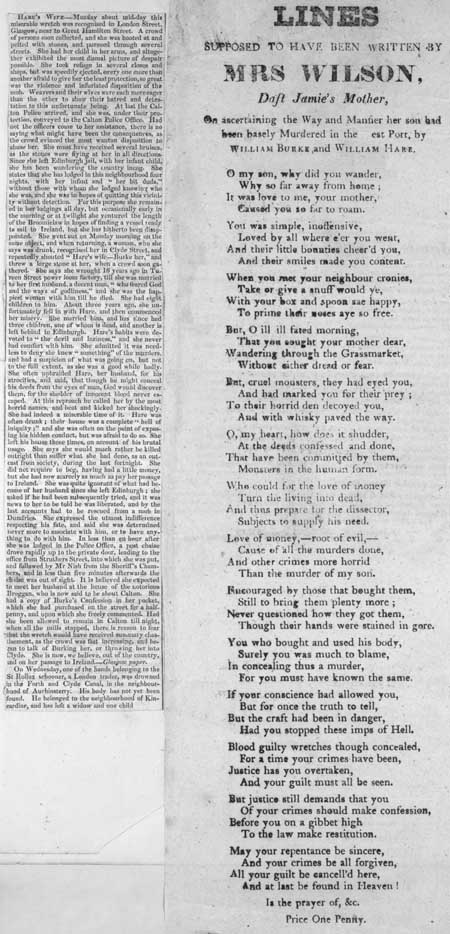Commentary
Following on from the title, the prologue continues: 'On ascertaining the Way and Manner her son had been basely murdered in the [W]est Port, by WILLIAM BURKE and WILLIAM HARE.' The ballad begins: 'O my son, why did you wander, / Why so far away from home'. Although there are no publication details included on this sheet, the subject matter suggests that it was almost certainly published in Edinburgh, in 1829. To the left of the ballad is an eye-witness report, describing how a Glasgow mob pelted William Hare's wife with stones. Although the headline to this sheet claims that the ballad was written by the mother of one of Burke and Hare's victims, it is far more likely to have been written by a broadside scribe. As highlighted in the adjoining story to this ballad, the public was in a vengeful mood at this time, with mob hysteria occurring in several Scottish cities - though especially so in Edinburgh. Continuing the female perspective, the adjacent news story tells of how Mrs Hare, after escaping the rage of the mob, eventually caught a steam-ship back to her native Ireland, but ended up living the cursed life of a wandering outcast. Early ballads were dramatic or humorous narrative songs derived from folk culture that predated printing. Originally perpetuated by word of mouth, many ballads survive because they were recorded on broadsides. Musical notation was rarely printed, as tunes were usually established favourites. The term 'ballad' eventually applied more broadly to any kind of topical or popular verse.
View Transcription | Download PDF Facsimile
|
 |
Probable date published:
1829 shelfmark: Ry.III.a.6(022)
 View larger image
View larger image
|


